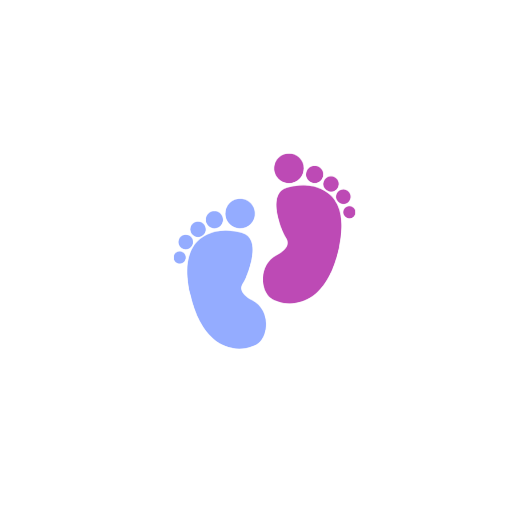Introduction
The teething is a stressful still ill-defined phenomena practically experienced by all parents. Most of them employ the use of medicine to control it. The major part of symptoms are mild and associated to pain rather than actual sickness, However, a sizable number still associate potentially harmful symptoms with teething. The process of the teething can be challenging for babies as during this process, baby may face several discomfort in their gums. The gums may become swollen and turn red, the pain that is associated with teething process cause fussiness and irritability in babies. Understanding how long does teething discomfort last for babies, may help to soothe the baby’s discomfort by parents awareness about the difference between the teething discomfort and other health issues of the baby. Understanding this duration may help parents when to get medical assistance if this duration last more than expected.
Teething process
Normally the teething phenomena starts at the age of 6 and 8 months, these teeth are primary teeth and later replaced by permanent teeth. The teeth eruption time vary from babies to babies. Babies getting their first tooth may communicate it through signs and symptoms that can be interpreted by their care givers or parents. General irritability, disturbed sleep, gum inflammation, drooling, loss of appetite, Diarrhea, intra-oral ulcers, and increase in body temperature, increased biting, gum-rubbing, sucking, wakefulness and ear-rubbing, have all been identified as being temporally related to teething.
Factors altering teething duration
The teething process may vary from baby to baby; Growth characteristics and eating patterns may influence the timing of tooth eruption in healthy newborns. Teething is a developmental process that happens throughout a wide age range. The eruption timing of primary teeth can be influenced by genetics, the child’s gender and gestational age, low birth weight, development characteristics, and nutritional condition.
Typical Duration of Teething Discomfort
How long does teething pain last for first tooth
Signs of teething discomfort shown by babies may vary; some babies show these signs around 3 month or may before. Primary tooth eruption typically starts around 4-8 months of age with the lower incisors and ends around 30-36 months of age with the eruption of the second primary molar. These teething discomfort are temporary and for a one primary teeth this discomfort last until the teeth completely erupts from the gums. A study was conducted on Nigerian children and showed the results that the boys had primary teeth emerge earlier than girls in both arches, with the exception of the first molars. Girls, on the other hand, had a shorter time of eruption (from the first to the last tooth to emerge) than males.

Strategies for Managing Teething Discomfort
Teething cures are sometimes done without consulting a dental expert, instead relying on advice from community nurses, friends, moms, self-help books, doctors, and pharmacies. Two ways one is Non-pharmacological methods and other is pharmacological methods.
In Non-pharmacological approaches aims either rubbing the site or cooling the teething site that helps to reduce the inflammation, on the other hand Chewing and gum massage may relieve discomfort by overloading sensory receptors.
In Pharmacological options that aim to provide Pharmacological treatments for teething usually seek to provide analgesia, anesthesia, or a combination of these.
When to Seek Medical Attention
Every infant is unique, and growth occurs at its own speed. The baby’s teeth will emerge between the ages of 3 and 12 months. If the kid is still toothless at 18 months, parents should consult a doctor because this might be a symptom of an oral health problem.
Teething raises the body temperature by less than one degree Celsius because it causes gum irritation and inflammation. Although low-grade fevers are possible the day before and after a tooth erupts, any fever above 38 degrees Celsius requires immediate medical attention.
Baby teeth are important as they help in speech development and for eating, it is also important to keep space in the jaw for adult teeth to grow properly. Cavities in baby teeth can spread to adult teeth and long standing bacteria in the cavity may affect the child’s overall health. Baby teeth need to be cleaned as soon as they appear. Cleaning baby’s gums with a soft damp cloth even before the tooth eruption is important.
It is always suggested that no medication is needed for baby teething, the best way to relieve the irritation is to give something to gum on like a teething toy.
Conclusion
The teething discomfort lasts until the duration of the primary teeth and eruption of the other teeth. There are various factors that affect the teething process like the nutritional level, age, low birth weight and developmental characteristics. There are both Non-pharmacological and pharmacological options available to manage the symptoms and teething discomfort but the recommended id non-pharmacological until and unless the discomfort is severe.
FAQ
- How long does teething discomfort typically last?
Can vary from baby to baby but last for a few days to weeks before and after tooth erupts.
- When do babies start teething, and when does the discomfort begin?
Babies start teething around 4-6 months of age and discomfort begins with before and after the time of eruption.
- Do all babies experience teething discomfort?
Discomfort associated with teeth is common but not all the babies experience significant symptoms.
- What are common signs of teething discomfort?
Increased drooling, irritability, swollen or tender gums, chewing on objects, disrupted sleep


